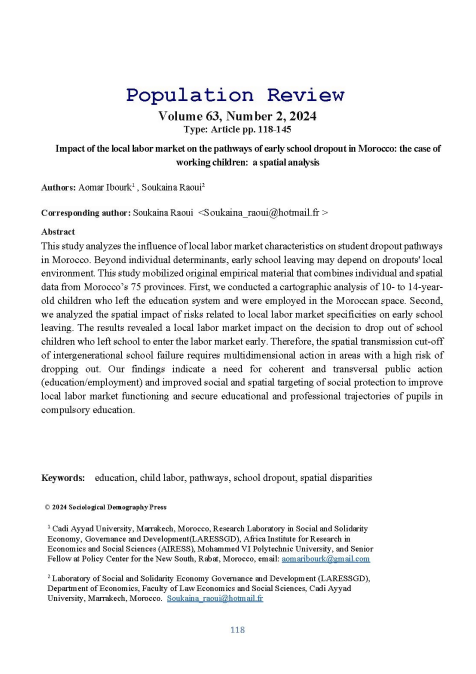حديث الثلاثاء: دور الذكاء الاصطناعي في تشكيل مستقبل الوظائف في الدول العربية
December 31, 2024
نخصص هذه الحلقة من برنامج "حديث الثلاثاء" لمناقشة تأثير الثورة التكنولوجية على مستقبل الوظائف في الدول العربية، مع التركيز على الكفاءة والاستدامة، كما نتناول الفرص والتحديات التي يطرحها هذا التحول بمشاركة السيدة نجلاء الأهواني، أستاذة الاقتصاد بجامعة القاهرة ووزيرة التعاون الدولي السابقة.
Speakers

Redouan Najah
International Relations Specialist
Redouan Najah is an International Relations Specialist in the Strategic Monitoring and Analysis Unit of the Policy Center for the New South. His areas of research and publications focus on cyberspace, cyber defense, cybersecurity, Central African countries, and China in Africa. Redouan joined the Policy Center for the New South research team in 2019. He holds a master's degree in Geopolitics and International Relations from Cadi Ayaad University, Marrakech, and a bachelor's degree in Economics and Management, from the Polydisciplinary Faculty, Béni-Mellal.
...

Naglaa Al-Hawani
Professeur d'économie à l'Université du Caire et ancienne ministre de la Coopération internationale
...







